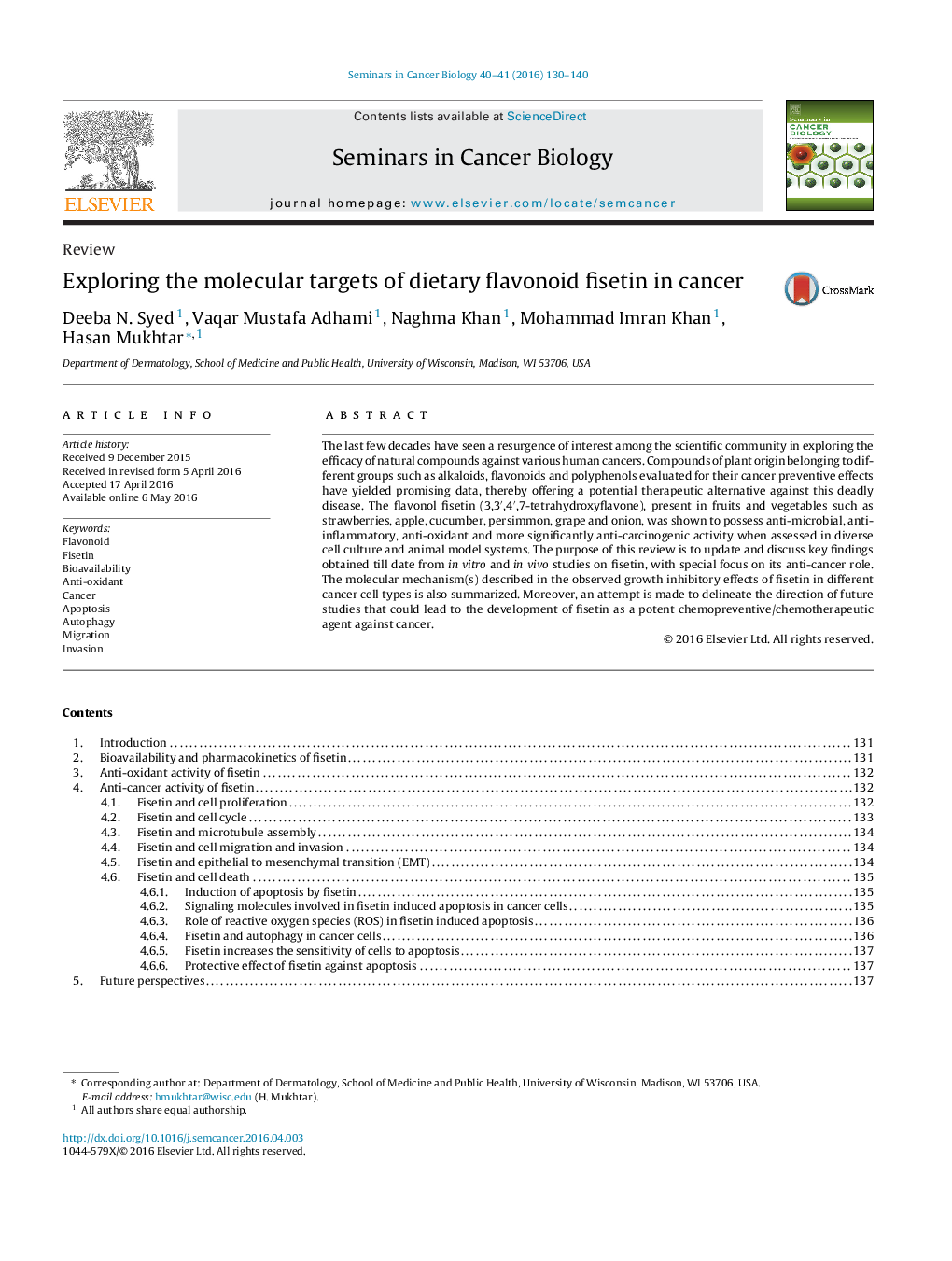| Article ID | Journal | Published Year | Pages | File Type |
|---|---|---|---|---|
| 8362006 | Seminars in Cancer Biology | 2016 | 11 Pages |
Abstract
The last few decades have seen a resurgence of interest among the scientific community in exploring the efficacy of natural compounds against various human cancers. Compounds of plant origin belonging to different groups such as alkaloids, flavonoids and polyphenols evaluated for their cancer preventive effects have yielded promising data, thereby offering a potential therapeutic alternative against this deadly disease. The flavonol fisetin (3,3â²,4â²,7-tetrahydroxyflavone), present in fruits and vegetables such as strawberries, apple, cucumber, persimmon, grape and onion, was shown to possess anti-microbial, anti-inflammatory, anti-oxidant and more significantly anti-carcinogenic activity when assessed in diverse cell culture and animal model systems. The purpose of this review is to update and discuss key findings obtained till date from in vitro and in vivo studies on fisetin, with special focus on its anti-cancer role. The molecular mechanism(s) described in the observed growth inhibitory effects of fisetin in different cancer cell types is also summarized. Moreover, an attempt is made to delineate the direction of future studies that could lead to the development of fisetin as a potent chemopreventive/chemotherapeutic agent against cancer.
Related Topics
Life Sciences
Biochemistry, Genetics and Molecular Biology
Biochemistry
Authors
Deeba N. Syed, Vaqar Mustafa Adhami, Naghma Khan, Mohammad Imran Khan, Hasan Mukhtar,
